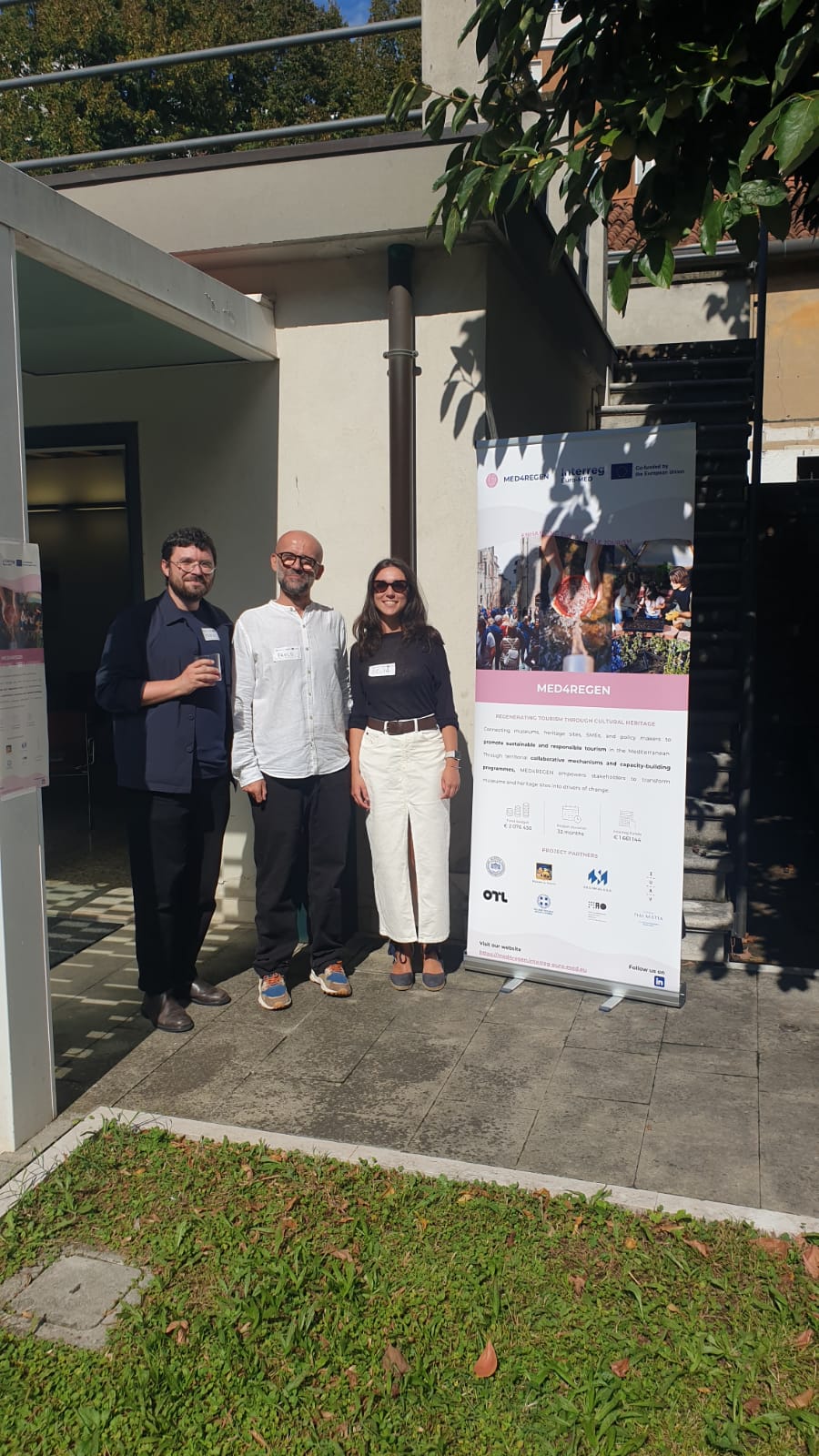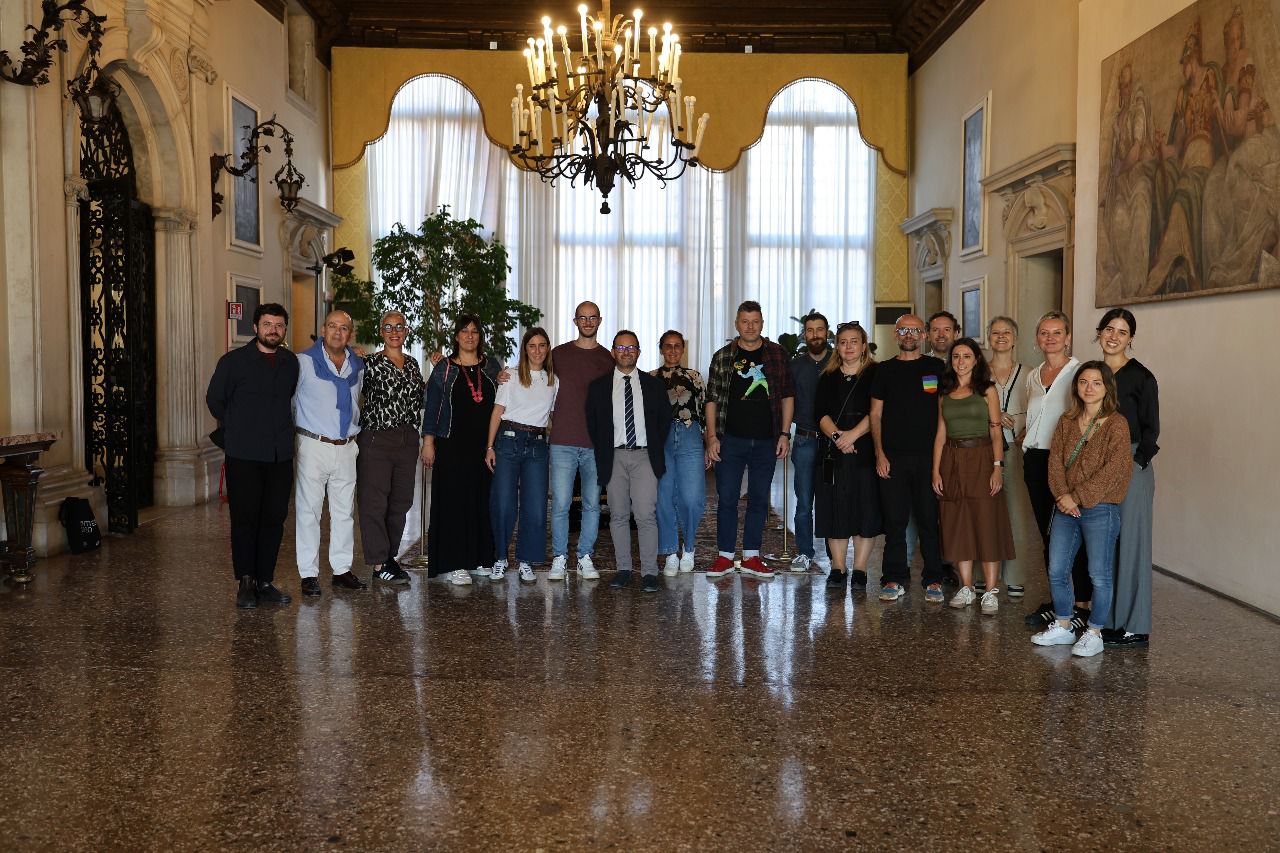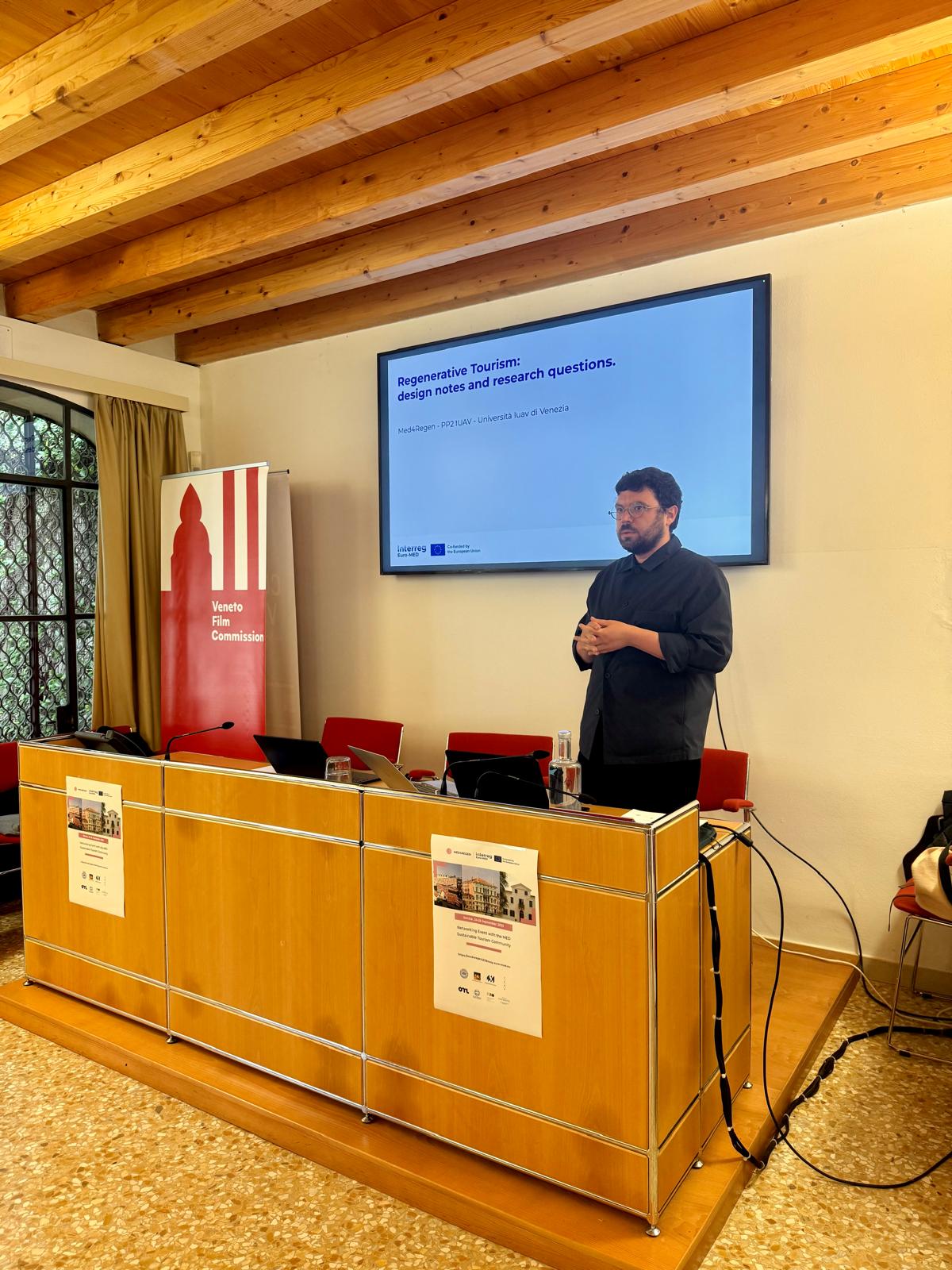From 24 to 26 September 2025, the MED4REGEN consortium gathered in Venice for its Technical and Steering Committee Meeting — three days rich in discussions, collaboration, and shared commitment to advancing regenerative tourism in the Mediterranean region.
Three days of collaboration, exchange, and collective vision across the Mediterranean
Bringing together partners and some associated partners from Italy, Slovenia, Spain, Greece, Bosnia and Herzegovina, Croatia, and France, the event marked an important milestone for the project: strengthening ties between teams, reviewing progress, and preparing the next operational steps.
Day 1 – Setting the stage for regeneration
The opening day, hosted by Regione Veneto, the partners Università IUAV di Venezia, Open Tourisme Lab and Veneto Region presented and focused on the first results of Work Package 1. Partners discussed the findings from the MED4REGEN focus groups, which revealed two major challenges to engaging cultural actors in regenerative tourism:
1 Reframing dominant tourism narratives toward more inclusive, place-based stories;
2 Overcoming structural barriers related to funding, coordination, and institutional support.
Sessions also introduced methodologies for upcoming pilot actions and cultural change in tourism by MAO, alongside the consortium’s Carbon Footprint Monitoring process presented by Split Tourism Board — a key element for assessing the project’s environmental impact.
The day concluded with a guided visit to the M9 Museum, an associated partner and a model of innovation and educational engagement, now exploring the integration of AI into its visitor experience.

Day 2 – Collaboration and communication at the core
The second day unfolded in the prestigious Palazzo Balbi, headquarters of Regione Veneto. The morning focused on financial and management aspects, followed by a transnational workshop on the project’s five main challenges — an opportunity for partners to share obstacles and solutions in a constructive, peer-learning format.
In the afternoon, Open Tourisme Lab led a session on the project’s communication strategy, highlighting the importance of coordination across the consortium’s 16 partners and associated institutions. The day concluded with a walking discovery of Venice organized by Via Querinissima, reinforcing the project’s connection to local culture and heritage

Day 3 – Building bridges and future synergies
The final day in Mestre was dedicated to networking and exploring collaborations. Contributions from Regione Veneto, NECSTouR, and representatives of related Interreg projects (Regenera4MED, MED-ROUTES, and HERIT ADAPT) offered valuable insights into how MED4REGEN can align with and complement other European initiatives.
Professor Mario Ciaramitaro introduced the project’s hyperlocal approach — understanding and adapting tourism services based on real observations and local needs. This framework lies at the heart of MED4REGEN’s ambition: to design tourism that regenerates rather than consumes, grounded in the realities of each territory.

A collective step forward
Beyond presentations and meetings, the Venice gathering reinforced the shared purpose of all partners: to foster cultural, social, and environmental regeneration across Mediterranean destinations.
As the project now moves into its next phase, Venice remains a powerful symbol of both heritage and resilience — echoing the spirit of MED4REGEN itself.
Stay tuned for the next milestones as pilot actions take shape across the Mediterranean basin.


